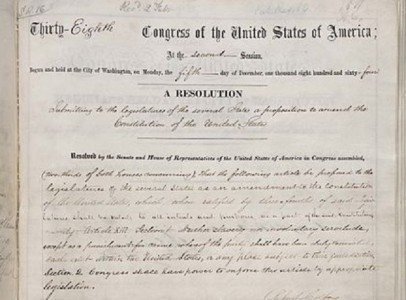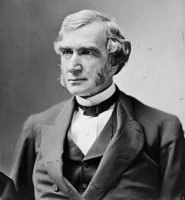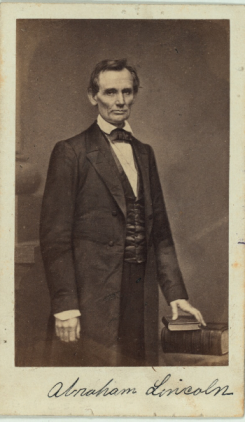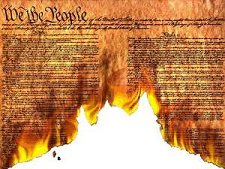In history Americans seem to prefer whitewashed myth to truth.
 Ludwell H. Johnson used the words, the American Iliad, in the subtitle for his comprehensive book on the American “Civil War,” North Against South. The Iliad analogy is very appropriate for two reasons. First, the War was a traumatic, bloody, and nation changing event. The enormous casualties and destruction alone would sear its battles, personalities, and tales of heroism into American memory. Second, what most Americans know about the causes of the War is a pious myth.
Ludwell H. Johnson used the words, the American Iliad, in the subtitle for his comprehensive book on the American “Civil War,” North Against South. The Iliad analogy is very appropriate for two reasons. First, the War was a traumatic, bloody, and nation changing event. The enormous casualties and destruction alone would sear its battles, personalities, and tales of heroism into American memory. Second, what most Americans know about the causes of the War is a pious myth.
But in history Americans seem to prefer whitewashed myth to truth – so much so that any truth that contradicts the ruling myths of academia and the dominant media and political class is apt to be shouted down or suppressed. One of the most important and persistent myths of American history is that the primary cause of the American “Civil War” was slavery, and that the War was morality play in which virtuous Northern armies crushed the wicked South in order to free the slaves. This myth is so enduring that it is taught as unassailable truth in American public schools and even in most Christian schools. The myth thus has widespread emotional if not factual support. The first 13th Amendment is one of several uncomfortable truths that demolish this much cherished propaganda.
Most Americans are at least vaguely aware that the 13th Amendment to the U. S. Constitution passed by Congress and approved by the States in December 1865 following the “Civil War” prohibited slavery. But this was actually the second 13th Amendment. The U. S. House of Representatives had passed with the required two thirds majority, a 13th Amendment on February 28, 1861. This same amendment was passed by the U. S. Senate on March 2, 1861. It was then sent to the States for final approval. Three quarters of the States must approve before an amendment becomes a validated part of the U. S. Constitution. Two days after Senate approval the newly elected President of the United States, Abraham Lincoln, promised to support this first 13th Amendment in his inaugural speech.
But what was this first 13th Amendment and what became of it? Here is the wording:
“No amendment shall be made to the Constitution which will authorize or give to Congress the power to abolish or interfere, within any State, with the domestic institutions thereof, including that of persons held to labor or service by the laws of such State.”
The first 13th Amendment would have forever prohibited any Constitutional change that interfered with slavery in any state!
Lincoln endorsed this amendment, which would have permanently engraved slavery into the Constitution by two statements in his inaugural address: First, self quoting what he had written to New York Tribune Editor, Horace Greeley:
“I have no purpose, directly or indirectly, to interfere with the institution of slavery in the States where it exists. I believe I have no right to do so, and I have no inclination to do so.”
Later in the speech he specifically promised to support this first 13th Amendment with these words:
“I understand a proposed amendment to the Constitution…has passed Congress, to the effect that the Federal Government shall never interfere with the domestic institutions of the States, including that of persons held to service. To avoid misconstruction of what I have said, I depart from my purpose, not to speak of particular amendments, so far as to say that, holding such a provision to now be implied Constitutional law, I have no objection to its being made express and irrevocable.”
In other words Lincoln had no problem with an amendment which would have prohibited the Federal Government from interfering with slavery in the States! In addition, he felt the Constitution already prohibited the Federal Government from interfering with slavery in the States!
The reason for this first 13th Amendment was, of course, to reassure Southern States that were threatening to leave the Union that there was not and never would be danger of any Congressional or Federal interference with slavery in the States. The slavery question was a concern to Southern States. The Northern States had gradually phased out slavery, but there had been few slaves in the North. Phasing out slavery in the North was a much less daunting social and economic endeavor. The calls of radical abolitionists in the North for immediate abolition of slavery regardless of the economic cost to the South and heedless of the hardship it would suddenly inflict on the slaves themselves, though not really a prevalent Northern sentiment, was a worry to the South. Slavery was by no means universally popular in the South, and many Southern States and individual Southerners were already struggling with how they might phase out the institution of slavery without devastating the Southern economy. But Southern States preferred to handle the slavery question when, if, and however they saw fit. Like Lincoln and many other political leaders in the North, the South considered how to handle the slavery question to be the Constitutional right of each state respectively.
Slavery was an issue that caused tensions between North and South, but it was by no means the only issue.
If slavery was the only crucial issue, the South had no reason to secede. The first 13th Amendment would have guaranteed the question in their favor.

Justin S. Morrill
There were other important issues to the South. One enormous issue was the question of tariffs and in particular the Morrill Tariff that had been passed by the predominantly Northern Congress with the support of only one Southern Congressman. This tariff like others in the past was an economic hardship to the agricultural South, but a protective benefit for Northern manufacturers. To make matters worse, most of the revenue was collected at Southern ports but substantially used to the benefit of Northern States. Southern States were furious over this tariff, which had just been raised from an average under 20% to an average which would reach 47%. The Morrill Tariff was part of Lincoln’s and the Republican Party’s campaign platform. In fact, Lincoln further endorsed the Tariff in his inaugural speech and strongly implied that even if the South seceded the tax would be collected by the Union Navy at Southern ports.
There were other issues as well. North and South had developed different views of government. The South favored the limited and decentralized federal government of the Constitution, but the North was strongly trending toward a powerful centralized government, especially with the election of Lincoln. Early in the years of the American Republic the South and especially Virginia had dominated national politics. Massive waves of immigration to Northern manufacturing states now made them much more populous and politically dominant. The South simply did not want to stay in a Union dominated by Northern interests. Besides the economic injustice to the South, the Morrill Tariff proved to Southerners that Southern interests would be disregarded and completely subservient to Northern interests in the future. There was even a growing religious rift caused by Southern Biblical orthodoxy versus what was to Southerners an alarming increase in unbiblical “isms” in the North such as unitarianism, universalism, transcendentalism, and other forms of religious or Biblical liberalism. This was particularly aggravated by the adulation of John Brown, radical abolitionist and Charles Manson style murderer of Kansas farmers suspected of Southern sympathies, in Northern pulpits and the Northern press. The radical abolitionists’ unmitigated hatred of everything Southern and constant insulting language directed against the South and its leaders also kept aggravating tensions. The first 13th Amendment would have relieved political tension over slavery, but not the Morrill Tariff and other very important political, economic, and cultural questions.
The first 13th Amendment became a moot issue after the firing on Fort Sumter and Lincoln’s call for 75,000 volunteers to invade the South. The outbreak of the” Civil War” that would claim the lives of 620,000 Union and Confederate soldiers and as many as 50,000 Southern civilians effectively cancelled the first 13th Amendment.
On March 2, 1861, the same day the first 13th Amendment passed the Senate, another Amendment to the Constitution was also proposed. This amendment would have outlawed secession. This is a good indication that most of Congress realized that the right of secession was implied when the Constitution was originally approved by the States and effectively reinforced by the 10th Amendment. In fact, text books used at West Point for years before the war had explained the validity of secession rights.
On July 22, 1861, the now Northern only Congress passed a joint resolution stating the purpose of the war:
“Resolved…That this war is not being prosecuted upon our part in any spirit of oppression, not for any purpose of conquest or subjugation, nor purpose of overthrowing or interfering with the rights or established institutions of those states, but to defend the maintain the supremacy of the Constitution and all laws made in pursuance thereof and to preserve the Union, with all the dignity, equality and rights of the several States unimpaired; and that as soon as these objects are accomplished the war ought to cease.”
In other words the Northern Congress stated in resolution that Union and not interfering with the institution of slavery was the purpose of the war.
Later, on August 22, 1861, Lincoln explained his thinking on the war to the abolitionist editor of the New York Tribune, Horace Greeley:
“My paramount object in this struggle is to save the Union, and it is not either to save or destroy slavery. If I could save the Union without freeing any slave, I would do it; and if I could save it by freeing some and leaving others alone I would also do that. What I do about slavery, and the colored race, I do because I believe it helps save the Union.”
 Nearly two years into the War Lincoln found it expedient to issue in September 1862, the Emancipation Proclamation. This actually freed no slaves in any territory under Union control. It was done primarily as a war measure. Lincoln hoped that the Proclamation would encourage slave uprisings in the South, thus causing Confederate troops to be diverted. The overwhelming majority of the slaves, however, proved remarkably loyal to the families of their Southern masters, most of which were away in the Confederate Army. Some say that it was also to please the anti-slavery British and thus keep them from coming into the War on the side of the South. The British did not come into the War on the side of the South, but they were not so stupid as to be fooled by this ruse. Though the Proclamation had disappointing military results, and only made the British more skeptical of Northern intentions, it did please those radical abolitionists who did not seem to mind the hypocrisy of a document that did not free a single slave in Southern territory occupied by the Union Army. After a period of discontent in the North and in the Union Army over the Proclamation, the abolition of slavery began to be used to bolster the moral purpose of the war. Ever since then it has been a prime propaganda tool justifying and glorifying the War as a just and noble cause.
Nearly two years into the War Lincoln found it expedient to issue in September 1862, the Emancipation Proclamation. This actually freed no slaves in any territory under Union control. It was done primarily as a war measure. Lincoln hoped that the Proclamation would encourage slave uprisings in the South, thus causing Confederate troops to be diverted. The overwhelming majority of the slaves, however, proved remarkably loyal to the families of their Southern masters, most of which were away in the Confederate Army. Some say that it was also to please the anti-slavery British and thus keep them from coming into the War on the side of the South. The British did not come into the War on the side of the South, but they were not so stupid as to be fooled by this ruse. Though the Proclamation had disappointing military results, and only made the British more skeptical of Northern intentions, it did please those radical abolitionists who did not seem to mind the hypocrisy of a document that did not free a single slave in Southern territory occupied by the Union Army. After a period of discontent in the North and in the Union Army over the Proclamation, the abolition of slavery began to be used to bolster the moral purpose of the war. Ever since then it has been a prime propaganda tool justifying and glorifying the War as a just and noble cause.
However, as can easily be seen in the first 13th Amendment, Lincoln’s speeches, and Congressional resolutions, slavery cannot be said to be the cause of the Civil War. It was an issue causing much tension, but it was not the cause of the War. These tensions are very much misunderstood today. Contrary to current misinformed public opinion, most Northern objections to slavery were not really of a high moral tone. Many Northern States, such as Illinois, severely restricted the possibility of any Blacks, free or slave, taking up residence within their borders. Ohio and Indiana prohibited free Blacks from even entering their states. Northern attitudes toward Blacks that drove much of the Free State versus slave state controversy can best be summarized by an October 16, 1854, quote from Abraham Lincoln, himself:
“Whether slavery shall go into Nebraska, or other new territories, is not a matter of exclusive concern to the people who may go there. The whole nation is interested that the best use shall be made of these territories. We want them for the homes of free white people. This they cannot be, to any considerable extent, if slavery shall be planted with them.”
A common, but highly impractical solution of what to do with emancipated slaves was colonization. That meant sending them back to Africa or to Central America. Lincoln, himself was strongly in favor of colonization. Lincoln was a great admirer of Henry Clay, who first proposed the colonization solution in 1827. Lincoln frequently stated his advocacy of colonization, and on December 1, 1862, in a message to Congress stated:
“I cannot make it better known than it already is, that I strongly favor colonization.”
This was undoubtedly spoken to reassure Northern politicians who were uneasy with the possible migratory consequences of the Emancipation Proclamation.
Lincoln opposed slavery and was in favor of gradual, compensated emancipation and colonization. But he obviously considered Union and Northern business interests a much higher priority than eliminating slavery. To his credit he recognized and hated the dangerous fanaticism of the radical abolitionists. But all the late and post War talk and modern propaganda about the War being a noble crusade to free the slaves and of Lincoln being the Great Emancipator is a shameless fraud.
Preserving the Union was the principal purpose stated by the North. That might be called noble; if forcing states to bear a subservient and exploited status in an unwanted and to them unprofitable Union by gunpoint can be called noble. The North had more than just territory in mind when preserving the Union. Loss of the Southern States would mean loss of most tax revenues, of which over 90% were from the tariff that so burdened the South. They would also have to compete with the South’s proposed free trade policies, which would have wreaked economic havoc in the North, just as the tariff had wreaked economic havoc in the South. The South would have gained economically by independence, whereas the North would have lost considerably both in tax revenues and trade. The “Civil War” was not really a civil war. Two titles for the war are most appropriate. For the South it was the War for Southern Independence. For the North it was the War to Prevent Southern Independence. It was not a glorious crusade to free slaves. Unfortunately, most Americans today accept the pious fraud that the “Civil War” was all about ending slavery. The first 13th Amendment, however, provides shattering documentary evidence disproving that cherished humbug.
~ RELATED ~
* The case of the missing 13th amendment to the Constitution
* The Original 13th Article of Amendment
Written by Mike Scruggs and published by The Tribune Papers ~ January 5, 2014
 FAIR USE NOTICE: This site contains copyrighted material the use of which has not always been specifically authorized by the copyright owner. We are making such material available in our efforts to advance understanding of environmental, political, human rights, economic, democracy, scientific, and social justice issues, etc. We believe this constitutes a ‘fair use’ of any such copyrighted material as provided for in section 107 of the US Copyright Law. In accordance with Title 17 U. S. C. Section 107, the material on this site is distributed without profit to those who have expressed a prior interest in receiving the included information for research and educational purposes. For more information go to: http://www.law.cornell.edu/uscode/17/107.shtml
FAIR USE NOTICE: This site contains copyrighted material the use of which has not always been specifically authorized by the copyright owner. We are making such material available in our efforts to advance understanding of environmental, political, human rights, economic, democracy, scientific, and social justice issues, etc. We believe this constitutes a ‘fair use’ of any such copyrighted material as provided for in section 107 of the US Copyright Law. In accordance with Title 17 U. S. C. Section 107, the material on this site is distributed without profit to those who have expressed a prior interest in receiving the included information for research and educational purposes. For more information go to: http://www.law.cornell.edu/uscode/17/107.shtml
